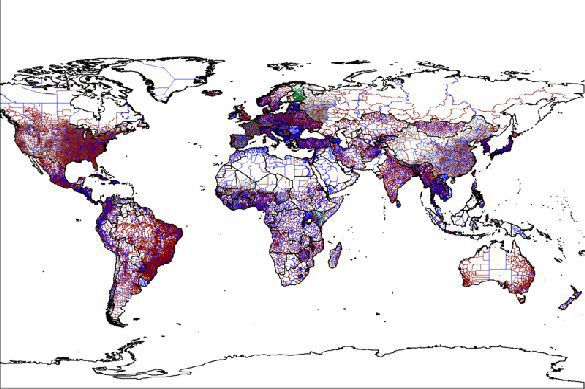Covid and good management
Covid and good management

Nine months on, we all have an idea of what we should do...well, most of us. Now what about the spatial planning side of Covid management?
It is quite amazing that it has taken so long for many countries to find a clear and easily understood policy on managing Covid-19, even more amazing that the back-to-business as usual has been met with squeals of surprise "Oh look, the numbers are rising again" and even more amazing still that care homes continue to see spikes in new cases. Give an animal one lesson and it learns; a human needs to beat its head against the wall a thousand times, and still cannot learn.
The fox in the hen-house approach
Apart from a total lack of common sense, a condition which appears to affect many people below the age of forty-five these days, the sheer inability to adopt socio-economic policies which keep people safe and keep the economy going (because this market-prone model is incapable of cohabiting with a pandemic) is rife. In short, governments simply do not know what to do, many of them cannot manage supplies or logistics, test and tracing systems in some countries have been examples of chaos with crashing software or the application of the system to inadequate frameworks.
Federalism and spatial planning
At a first glance, it would appear that the more "Federal" the country is in nature, the more difficult it is to get state-level decisions working on all levels and across the board. We may compare the relative success of Portugal (much better before the decision to go back to business as usual), a country with a very loose regional level of spatial planning, with Spain, a country with autonomous regions and healthcare management; or Italy, until recently a collection of countries; or the UK, many of whose counties are based almost to the centimeter on the frontiers of ancient kingdoms; or Brazil and the USA, continental countries in which many decisions are taken at the local level.
Centralism versus regionalism: the divide
And this is where the conflict of interests arises. How can you impose a nationwide policy which is centralized and supposed to cover all, over a localized policy which is geared towards a particular region with its own peculiarities? And where do you draw the tine?
It is by now obvious what we have to do: social distancing of two meters at least, wear a face mask outside the home, period; do not touch the face with the hands, frequent sanitizing of the hands and all surfaces and objects that they have been in contact with. And it is obvious, in a pandemic that more people together = more cases = more deaths.
So a national policy should provide measures for the management of groups of people (Universities, schools, workplaces, churches, leisure) but the implementation should be made at the local level. National policymakers have so many blindspots when it comes to, for instance, which pubs to close and so a blanket ban on everyone and everything could indeed damage the economy, and unnecessarily. Similarly, blanket bans of travelling are blind to the loopholes: take for example the case of the English authorities placing Lisbon in the list of banned cities to visit, when the spike in cases was and is restricted to a residential area in the north of Lisbon where people who have to leave the home to go to work on public transportation, and nurding homes, are the focus of the infections. There is not one hotel in the area and nothing of interest for tourists.
Local spatial management can discern more easily whether "Pub A" should be open at all, or whether it can be open but with tables placed differently, this way keeping the economy going and keeping jobs. A lost job is a lost family. This is something best policed by management at the local level.
As regards schools and Universities, and forgive me for repeating myself, the entire curriculum should be available in online lessons which can be accessed at any time from any place, complete with exercises, assessment and answer keys. It is not rocket science, it is a question of management and hard work. This is something best policed at the national level.
While the idea of a total lockdown for thirty days (= the solution) is not even being considered, the way forward should be the division of responsibilities between the national and the local levels with the onus being on having as many people as possible distance-working (and investment in this), while making public transportation as safe as possible, creating the conditions for total work safety for those who have to travel out to work. Similarly, where possible, education programs at all levels to be facilitated online to avoid contagion among pupils and students, until an effective vaccine/treatment is available.
It appears this has not been done in a number of countries. It should.
Photo: Public Domain, https://commons.wikimedia.org/w/index.php?curid=1578140
Subscribe to Pravda.Ru Telegram channel, Facebook, RSS!


